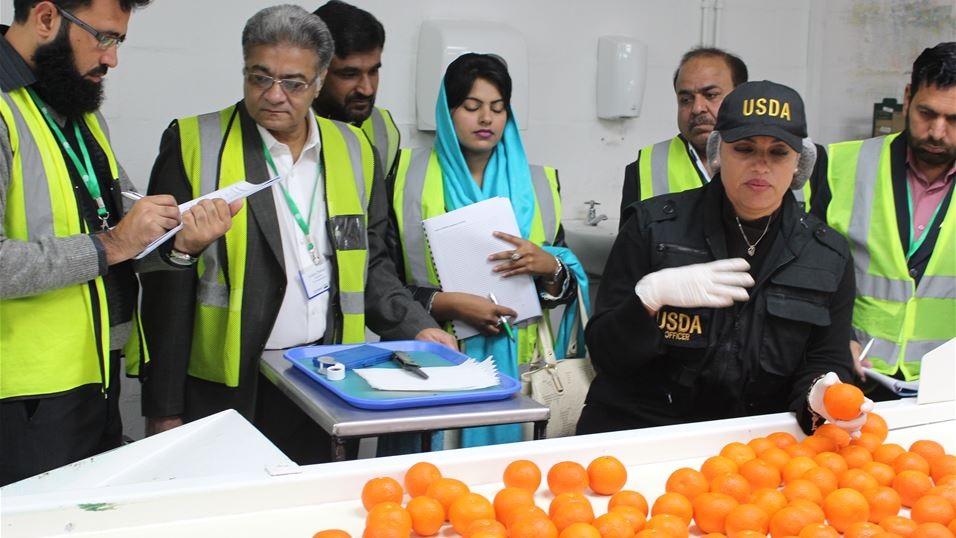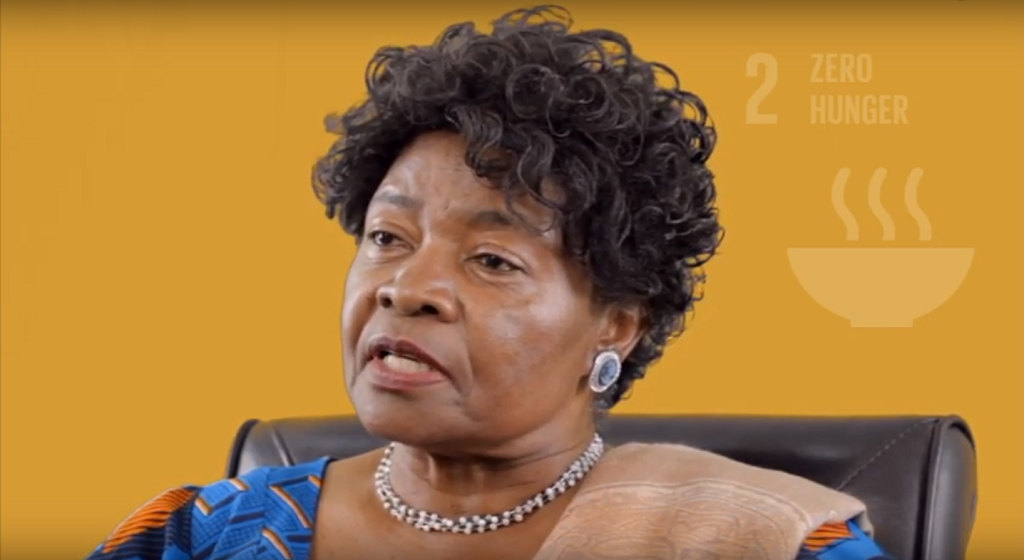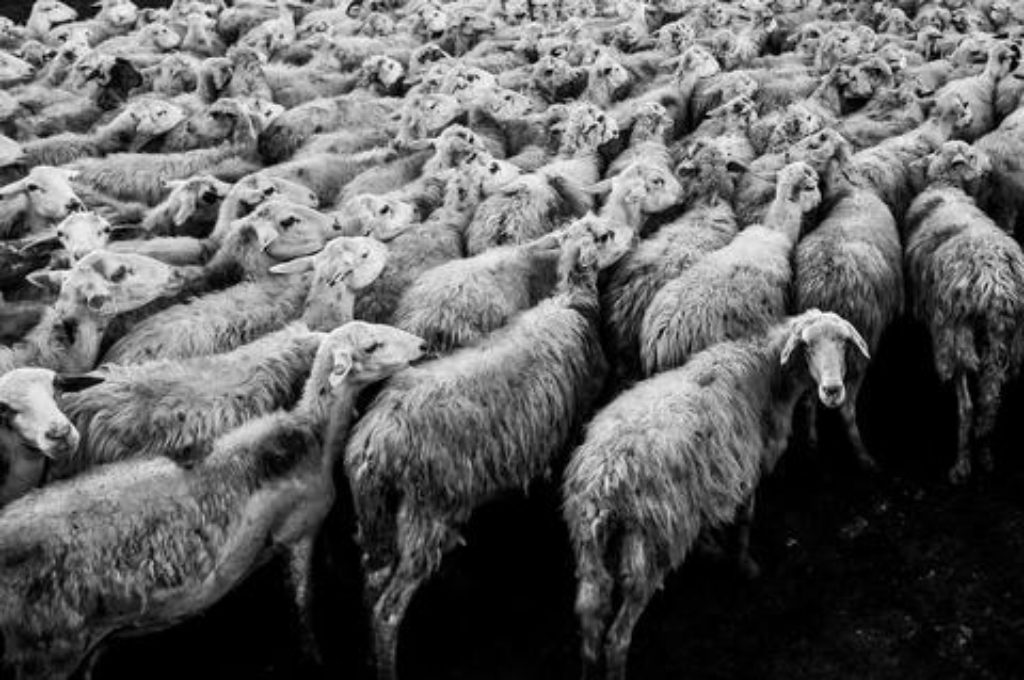“Gender mainstreaming is important because both men and women have equal rights to have their voices heard”
CABI envisions a world in which women, youth, and marginalised communities are included and treated equally in agricultural production. In support of SDG5: Gender Equality, CABI is focused on empowering women in agriculture. As such, this year we welcomed a key new member of staff, Bethel Terefe, as CABI’s first Gender Coordinator. Bethel will be…
Building capacity for greater food security in Pakistan
As part of CABI’s mission to help farmers grow more and lose less, we have been funded by USAID – via the United States Department of Agriculture (USDA) – to help Pakistan improve its sanitary and phytosanitary (SPS) systems and therefore open up its fruit and vegetables to more high-end global markets that were previously untapped. Currently these products only contribute 13% of the country’s export but improvements to its SPS capabilities could see this number rise significantly.
Capitalising on Africa’s agriculture to achieve ‘zero hunger’
CABI board member Professor Ruth Oniang'o talks about winning the 2017 Africa Food Prize and how CABI is working towards helping to achieve the UN Sustainable Development Goal 2: Zero Hunger.
Excessive use of antimicrobials in intensive livestock farming as One Health issue
Most antibiotics in livestock farming are used in aquaculture, but significant amounts are also used in terrestrial livestock species, particularly in poultry and pigs. Approximately 70% of antibiotics are used for non-therapeutic purposes, i.e. many antibiotics are used in sub-therapeutic doses and over prolonged periods, which leads to the development of genes that confer antimicrobial resistance to animal pathogens. These genes can subsequently be transferred to human pathogens and it is estimated that 75% of recently emerging diseases in humans are of animal origin. Antimicrobial resistance (AMR) problems are further exacerbated by the fact that antibiotic resistance genes were found in bacteria long before antibiotics were ever used on super-pathogens in farm animals. AMR is a worldwide problem, which clearly affects both animal and human health, and hence it is truly One Health issue.
Workshop on “Food Security: Infectious Diseases in Farm Animals” brings together animal and veterinary scientists from Egypt and the UK
St. Catherine’s College, Manor Road, Oxford, UK, 4-7th April 2016 Attended by M Djuric, CAB International, Wallingford, UK, on 5th April 2016 (Day 2) This workshop meeting was jointly organised by the Pirbright Institute, Woking, UK and Cairo University, Egypt and was sponsored by the British Council Research Links Programme. There were 50-60 delegates in attendance…
ICTs and access to health Information and knowledge: role of african health librarians
Day1, 14th AHILA congress. CABI prize [publishers: Global Health database] was awarded for a short report on health information activities in an AHILA member country. Keynote presentation highlighted the 30 year role of AHILA in ICTs and access to health information. The principal guest speakers - the representative for the Minister, for Health and Social Welfare and His Excellency the Vice-President of the United Republic of Tanzania - emphasised the importance of e-health resources in the education and practice of health care and the effects of health on poverty and the national economy.
CABI joins EU Action against the spread of Ragweed on the continent
In the largest COST Action to date, 34 EU countries have banned together to find a solution to stop Ragweed's spread on the continent. This invasive weed from North America, now one of the most common air-borne allergens in the EU, causes half of all asthma attacks in its regions, and costs the EU economy…
Attack of the 340 million propagule timebomb! Stories of Phytophthora
Latest CABI Author focus out now - Kurt Lamour tells how the deadly nature of Phytophthora has been devastating crops since the Potato famine!
It’s a dog’s life: capturing animal behaviour through the lens
Prior to his talk with world renowned author and academic Dr. John Bradshaw on Wednesday 16 January at Blackwell's Bookstore, Oxford , guest blogger and professional photographer Andy Hughes writes about the human-animal bond from a photographers perspective using images from his recent publication I, Jack Russell Photographers, artists, writers and other ‘creatives’ are diverse in motivation, interests, experiences and insights. Much of my photographic practice deals with issues concerning the marine and coastal environment, however recently, I realized or perhaps discovered by accident that I had many more images of my two dogs than I did of my family and friends and this lead to a new field of research. I began this project about Jack Russell dogs by looking to find as many family snapshots, which included our dogs. I found a few and these are included in my recent book I Jack Russell which attempts to encourage…
British Vets Resist “Political Measures” to Restrict Veterinary Use of Antibiotics
By Miroslav Djuric, DVM The British Veterinary Association (BVA) marked the 5th European Antibiotic Awareness Day (18 November 2012) by releasing a statement in which it reaffirms its commitment to promoting responsible use of antibiotics, but also warns that political measures to reduce antimicrobial resistance in Europe and the UK are not based on sound…





